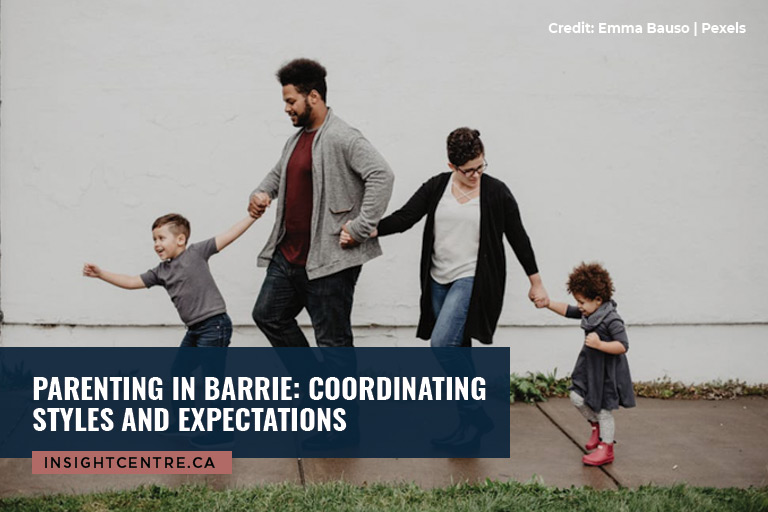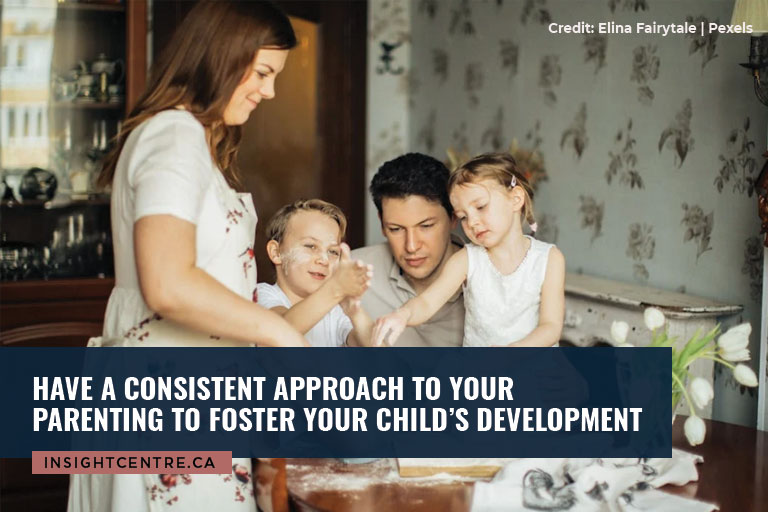
Raising children in Barrie presents wonderful opportunities. From exploring the waterfront and attending community events to benefiting from excellent schools, Barrie offers a rich environment for families. However, navigating the complexities of parenthood can be challenging, especially when parents have different parenting styles and expectations.
This article explores common parenting styles, how to identify your own, and strategies for coordinating with your partner to create a unified approach that benefits your children.

Every parent has a unique way of interacting with their child. These styles are shaped by our own upbringing, cultural background, and personal values. Here’s a look at four common parenting styles:
These parents set high standards and expect strict obedience. They prioritize discipline and may use punishment to enforce rules.
These parents establish clear rules, but they are also open to explanations and discussions. They encourage independence while providing guidance and support.
These parents allow their children a lot of freedom and are less focused on enforcing rules. They may prioritize building a strong emotional connection with their child.
These parents are uninvolved in their children’s lives and provide little guidance or structure.
There’s no single “right” parenting style. The best approach often blends elements from different styles depending on the situation and the child’s age. However, significant differences between parents’ styles can lead to confusion and inconsistency for children.
Reflect on your own values and how you typically respond in parenting situations. Consider these questions:
By understanding your own tendencies, you can better communicate with your partner and work towards a parenting approach that feels cohesive for both of you.
Before you can determine how to parent your child with consistency, there are a few areas of contention you need to address as a couple:
One parent may favour time-outs, while the other prefers grounding. Inconsistencies can confuse children and make it harder for them to learn from their mistakes.
Negotiating healthy boundaries around technology use can be a constant battle. Differing opinions on screen time limits can lead to frustration for both parents and children.
Expectations around chores and helping around the house can vary. One parent may believe in a strict allowance for chores, while the other may take a more relaxed approach.
Deciding on the appropriate number of activities and the right balance between structured commitments and free play can be a source of tension.

Parenting website raisingchildren.net.au says, “A consistent approach to parenting gives your child a sense of security and safety because they know what to expect in their family life. This is good for your child’s development.” That’s why it’s imperative that you and your partner agree on this point. Here’s what you can do:
Discuss your parenting philosophies openly and honestly with your partner. Share your hopes, concerns, and past experiences.
In his book “The Seven Principles for Making Marriage Work: A Practical Guide from the Country’s Foremost Relationship Expert”, John M. Gottman says, “Active listening asks couples to perform Olympic-level emotional gymnastics even if their relationship can barely walk.” It is a challenge, yes. However, it is key to open communication. So you need to pay close attention to your partner’s perspective and avoid interrupting.
Identify areas where your styles naturally align. Focus on these shared values as a foundation for building a unified approach.
Be willing to bend a little. Acknowledge that there may not always be a single “best” way to handle a situation. Discuss potential solutions and find a middle ground that you both feel comfortable with.
Avoid contradicting each other in front of your children. If you disagree on how to handle a situation, discuss it privately and come to a consensus before addressing it with your child.
Parenting is a journey, and your styles may evolve over time. Be open to adapting your approach as your children grow and your needs change.
Additional Tips
Create a vision statement together that outlines your core parenting values and goals. This can serve as a reference point when making decisions.
View yourselves as a team working towards the common goal of raising well-adjusted children.
If you’re struggling to coordinate parenting styles or navigate challenging situations, consider seeking guidance from a therapist or counsellor that handle family dynamics.
If you’re finding it difficult to coordinate parenting styles, seeking professional guidance can be incredibly beneficial. A therapist or counsellor can provide a safe and supportive space for you to explore your differences, develop communication skills, and build a more unified approach to parenting.
Here are two specific therapeutic approaches that can be particularly helpful for couples with different parenting styles:
This evidence-based approach focuses on strengthening communication and building emotional intimacy within couples. The Gottman Method teaches couples essential skills for managing conflict, building trust, and increasing empathy. Through these tools, parents can learn differences in parenting philosophies in a constructive and respectful way.
This approach views the family as a system where each member’s behaviour affects the others. A therapist using family systems therapy will help you identify patterns of interaction within your family that may be contributing to parenting challenges. By understanding these patterns, you can work together to develop healthier communication and collaboration.
Therapists trained in these approaches can also provide strategies for:
Coordinating parenting styles takes effort and commitment, but the rewards are immense. By working together, you can create a nurturing and stable environment that allows your children to thrive. Remember, there’s no perfect approach – the most important thing is to present a united front that fosters your children’s well-being and growth.
Remember, seeking professional help is a sign of strength and commitment to your family’s well-being. Insight Centre Counselling & Psychotherapy in Barrie offers therapy for couples and families and can help you deal with the complexities of parenthood together with the use of the Gottman Method and Family Systems Therapy. You can reach us at +1 647-633-1928 to schedule an appointment and start your journey toward a more unified parenting approach.
Copyright 2024 Insight Centre | All Rights Reserved | Sitemap | Powered by: Local SEO Search Inc.